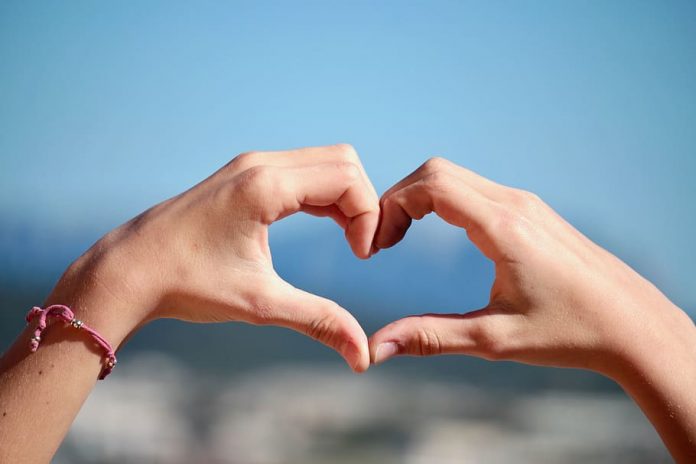Across Europe, people are showing unprecedented solidarity in the face of the COVID-19 Coronavirus both in words and deeds since the continent became the epicentre of the pandemic.
To symbolize this renewed spirit of solidarity, 160 European radio stations simultaneously played the song “You´ll never walk alone”, best known as the battle song of the English football team Liverpool.
 As France and Belgium have joined Italy and Spain in confinement, hundreds of people have stepped out on balconies at 8 p.m. to applaud and thank health care workers for their exceptional contributions.
As France and Belgium have joined Italy and Spain in confinement, hundreds of people have stepped out on balconies at 8 p.m. to applaud and thank health care workers for their exceptional contributions.
Italians have not only initiated choir singing from balcony to balcony, but also group playing where each of the musicians contributes from their terraces or windows.
Not to be outdone, in Spain, professional opera singers from all over the country have joined the viral movement and are performing from their balconies and posting on social media.

On the Facebook page Cor-ona, the Welsh have been encouraged to record their singing and hundreds of people from 3 to 90 years old have responded enthusiastically.
Although Germany has so far escaped Italian-style “lockdown” of its citizens, there are countless examples of neighbours helping one another, for example, by doing groceries, babysitting or taking pet dogs for a walk. People are sharing these acts of kindness on social media with the hashtag #Nachbarschaftschallenge.
The same can be said of most Western European countries. In France, for instance, there is a high number of solidarity inter-aid groups of parents, neighbours and villagers with names such as « S’entraider face au coronavirus à Toulouse », or « Coronavirus Covid-19 Groupe Français ». In these groups, people can ask for, or offer, volunteer services from grocery shopping to helping the elderly or taking care of the pets of hospitalised people.
In Cologne, the “Zusammen gegen Corona” action-group organized by school children and other young people, offers help to the elderly and families, for example by taking care of groceries and babysitting children of medical staff and emergency workers.

In Luxembourg, a free home delivery service has been set up by the government to ensure the most vulnerable can receive essential items in their homes for free.
In Almere, in The Netherlands, platform Coronamaatjes connects the elderly and those who are unwell to local residents, with offers of help to go shopping, walk dogs or just for a chat on the phone. Similar projects have also appeared in Utrecht, Nijmegen and Venray.
In Belgium, prisoners have been sewing masks to meet the shortage in supply. The prison service is calling for more sewing machines so they can make the masks, saying they have the material to produce over 10,000 of them.
All over the continent, many restaurants have switched to delivering food. When a pizzeria in Sarpsborg in southeastern Norway had to empty its stock, the employees decided to surprise hospital staff with a gigantic delivery. But it was more than the food that gave them a reason to smile. Inside the pizza boxes were written heart-warming messages.
“You are true everyday heroes,” said one of the boxes Myvang opened.
Inside other boxes were written messages like: “You are invaluable”, “You sacrifice your lives to save others”, and “While others are thinking of themselves, you are thinking of everybody else!”
The European cultural sector has been hit by cancellations throughout the continent but many concerts, DJ sets, theatre and ballet shows are being live-streamed. In Iceland, journalist Ólafur Teitur Guðnason successfully mobilized music fans on Facebook to pay for tickets to cancelled shows.
Many well-known German musicians are live-streaming concerts from their homes on social media. After the cancellation of James Blunt’s concert in the Elbphilharmonie in Hamburg, he proceeded to give the concert to the empty venue which was live-streamed for free.
It is the same story everywhere. In France, many cultural events have been moved into cyberspace. The Paris Opera has submitted recordings of some of its most popular operas online and the same goes for Berlin´s “Staatsoper unter den Linden”.
The Louvre and the Quai Branly museum are offering guided virtual tours of their world-famous collections. The Natural Science Museum “Museum für Naturkunde” and the Monet exhibition in the “Museum Barberini” can be visited virtually. In all 121 German art collections can be visited virtually via Google Arts & Culture.
Many pay-TV stations in Europe are offering their programmes for free. Several German magazines are making their latest issues available online for free. Internet providers have also upped their customers’ data volume for free.
The French fashion companies LVMH and L´Oréal have transformed their perfume factories so that they can produce hand-washing gel.
Sport has also been hit by the virus, but there have been some original responses. Germany’s biggest online platform for nutrition and fitness “Gymondo” is free for the coming month. The largest German basketball club Alba Berlin is streaming live 45-minute sport classes for children via YouTube.
Many national and European sports events have been cancelled and postponed, including the English Premier League. Liverpool were run-away leaders when the competition was put on hold. However, their long-awaited coronation will possibly have to wait due to the COVID-19 pandemic, but instead, many Europeans will find some solace in the club anthem slogan: “You´ll never walk alone.”




